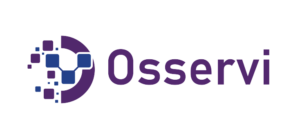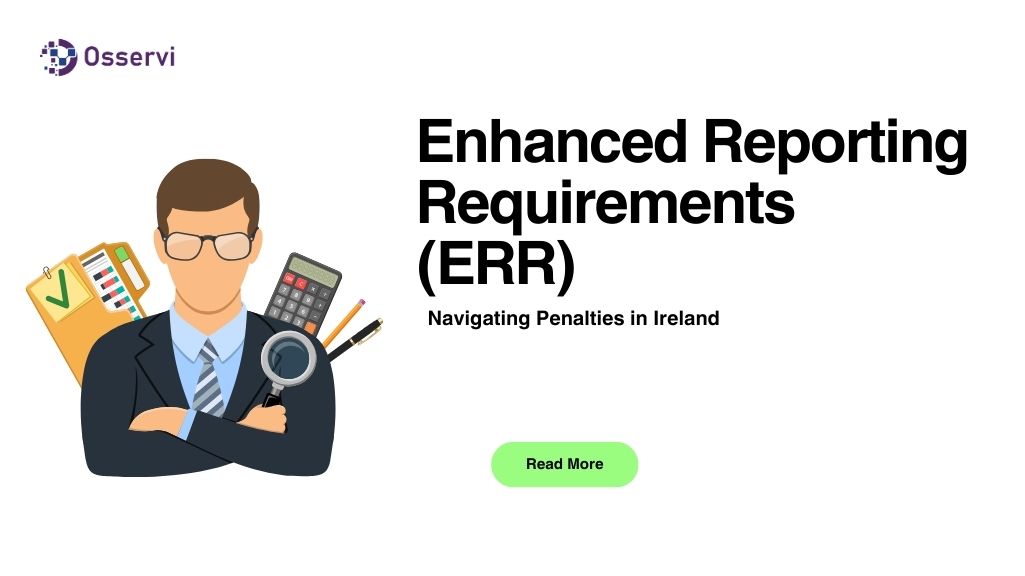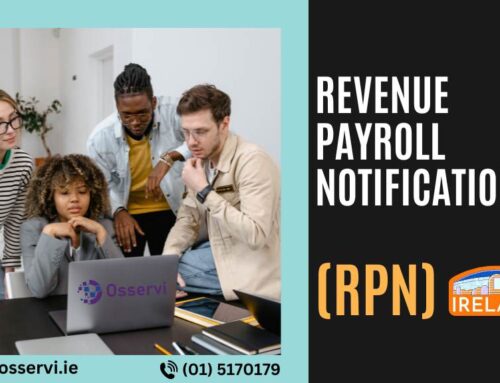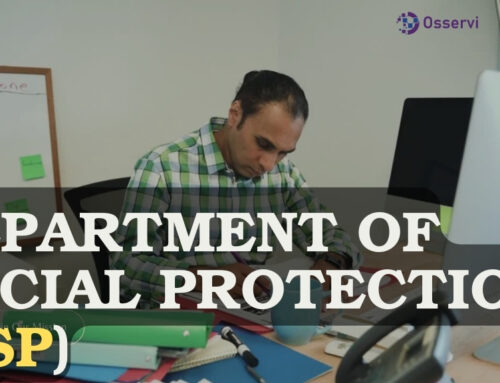Enhanced Reporting Requirements (ERR): Navigating Penalties in Ireland
In January 2024, Ireland introduced the Enhanced Reporting Requirements (ERR) for employers, significantly impacting how they report non-taxable employee payments. While the Revenue Commissioners (Revenue) initially adopted a service-for-compliance approach, with a focus on supporting employers during the initial implementation phase, the grace period has ended. This blog post delves into the potential penalties associated with non-compliance with ERR and provides guidance on how to avoid them.
What are the Enhanced Reporting Requirements (ERR)?
The ERR mandate employers to report three specific categories of non-taxable payments made to employees in real-time:
- Remote Working Allowance: This allowance compensates employees for additional expenses incurred due to remote work, such as internet bills or heating costs.
- Small Benefit Exemption: This exemption allows employers to provide employees with up to €1,000 worth of non-cash benefits per year without incurring income tax or PRSI liabilities. This could include vouchers, gym memberships, or public transport tickets.
- Travel and Subsistence: Expenses related to business travel, including meals, accommodation, and transportation, need to be reported under ERR if they are not reimbursed directly by employees.
What are the Potential Penalties for Non-Compliance?
While Revenue initially offered a grace period with a focus on supporting employers’ transition, the current regulations outline potential penalties for non-compliance with ERR. These penalties can be significant and can impact both employers and employees.
Penalties for Employers:
- Fixed Penalty Notices: Revenue can issue fixed penalty notices for non-compliance. The specific amount of the penalty can vary depending on the severity of the offense and the number of previous offenses.
- Surcharges and Interest: Failure to submit accurate or timely reports can lead to surcharges and interest charges on any unpaid tax liabilities arising from non-reported benefits.
- Reputational Damage: Non-compliance can damage an employer’s reputation and potentially harm employee relations.
Penalties for Employees:
- Tax Liabilities: If BIK is not reported by the employer, employees might end up with unexpected tax liabilities when Revenue identifies the unreported benefit.
- Fines and Penalties: In severe cases of non-compliance, employees might be subject to fines and penalties directly from Revenue.
How to Avoid ERR Penalties:
Here are some key steps employers can take to avoid ERR penalties:
- Register for Revenue’s Online System: Employers need to register for Revenue’s online portal, my Account, to submit ERR reports electronically.
- Understand the Requirements: Familiarize yourself with the specific rules and reporting requirements for each category of non-taxable payment under ERR.
- Implement a Robust Reporting System: Develop a system for accurately collecting and recording employee benefit information and submitting timely reports.
- Seek Professional Guidance: If unsure about any aspect of ERR, consult with a tax advisor or payroll professional to ensure compliance.
- Stay Updated: Keep yourself informed about any changes or updates to the ERR regulations by monitoring Revenue’s website.
Additional Considerations:
- Record Keeping: Employers are required to maintain proper records for a minimum of six years from the date the ERR report is submitted. These records should document the nature of the benefit, its value, and the employee who received it.
- Employee Communication: Communicate clearly with your employees about the ERR requirements and how it might affect their benefits. This transparency can help ensure everyone is on the same page.
Conclusion:
The ERR is a significant change for employers in Ireland. While the initial grace period has ended, employers who remain proactive and take steps to understand and comply with the regulations can avoid penalties and ensure smooth tax reporting for both employers and employees. By implementing a robust reporting system, seeking professional guidance when needed, and staying informed about updates, employers can navigate ERR effectively and maintain good standing with Revenue.
Continue Reading
Get a personal consultation.
Call us today at (01) 5170179
Packages to suit your budget (we are on avg 30% better value than competitors)..
Frequent Searches Leading To Pages:
Payroll Services Ireland | Payroll Services | Payroll Ireland | Payroll Outsourcing Ireland | Outsourced Irish Payroll | Outsource Payroll Services Ireland | Outsourced Irish Payroll Services Dublin & Ireland | Ireland Payroll Service | Payroll companies Ireland | Payroll service provider





